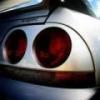Is It Possible To Disable A Turbo?
Announcements
-
Similar Content
-
Latest Posts
-
Physically, you'd expect it to turn the motor 11/8ths faster than a standard one, but I'm not sure of specifics
-
By hoodedreeper · Posted
Ironically the GTT was quite reliable in the 7 years of ownership. From memory I've only had to replace a radiator and coilpacks out of inconvenience -
Yes I can see how that would put you off HFM, especially with the price of good quality brake fluid. From what I understand it as you say the BM50 is the standard BMC for a R32 GTR, I must admit I would like to go far a Genuine Nissan BM57, but lack of cash prevents that at present. With the price being so close between the genuine BM50 and BM57 a BM57 New it seems a better choice as you gain that 1/16 bore size with the BM57, I would be interested in how much difference you feel with the BM57 fitted. I am going to take SteveL's advice in the short term and see how much actually comes out of that proportioning valve vent and save up for the Genuine Nissan part. Thanks for clarifying the HFM failure
-
Thanks mate. I just got the post inspection 1/2 done from state roads when the starter motor packed up, either that or the car alarm system is having trouble. OEM part number 23300-AA112.
-
Hi, I though I was coming to an end in finding a replacement starter motor for a rb25de neo. I came across a starter motor from Taarks and a message below stating: Direct fit. 11 Tooth count. All below part numbers have been superseded to 11 teeth. Can some body shed some light on going from 8 teeth to 11 teeth apart from 36-month / 25,000 km warranty for passenger vehicles to 12 Month Warranty. Compatible with the following Nissan part numbers: 23300-20P00 23300-20P01 23300-20P05 23300-20P10 23300-20P11 23300-AA111 23300-AA112 23300-AA300 23300-08U10 23300-08U11 23300-08U15
-






Recommended Posts
Create an account or sign in to comment
You need to be a member in order to leave a comment
Create an account
Sign up for a new account in our community. It's easy!
Register a new accountSign in
Already have an account? Sign in here.
Sign In Now